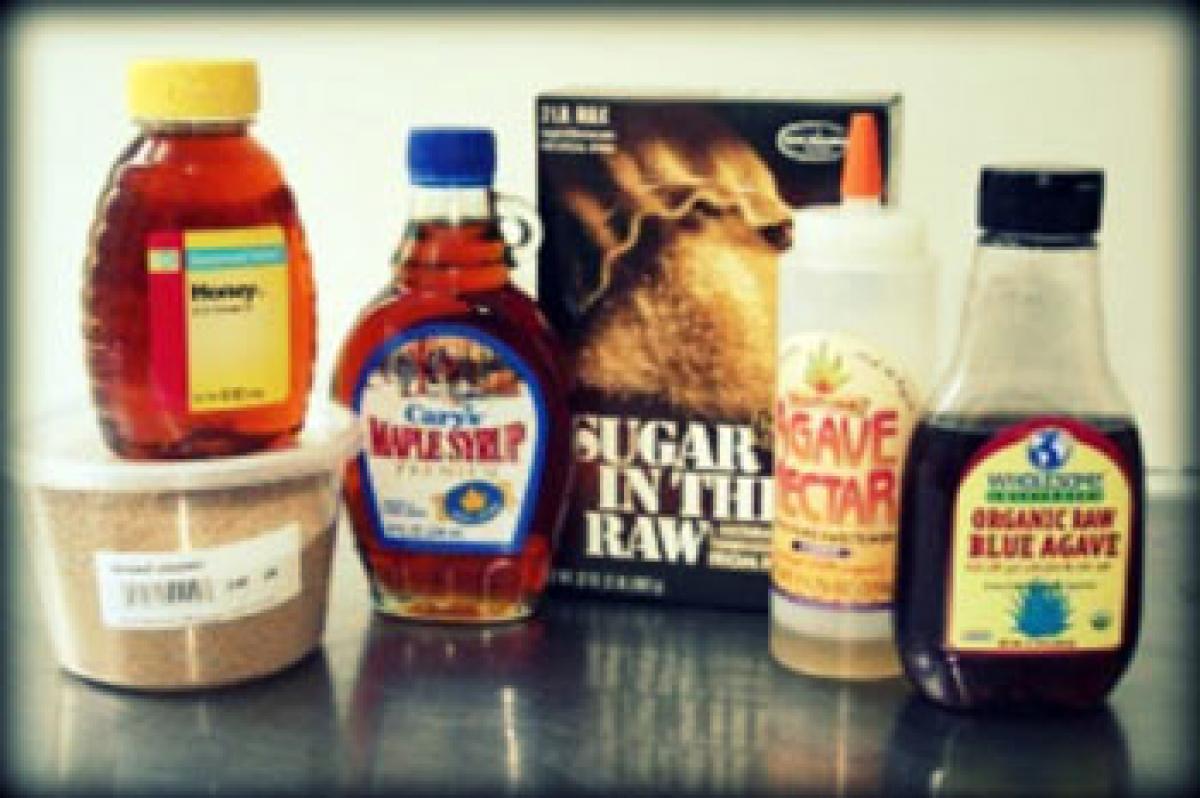Live
- First Impressions and Unboxing of the MacBook Pro M4: A Powerhouse for Professionals and Creators
- China Gears Up for Potential Trade War Amid Trump’s Tariff Threats
- Small Farmers Gain Less by Selling to Supermarkets: Study Reveals
- Why Despite the Controversy, America Is Anticipating the Mike Tyson vs. Jake Paul Fight
- Sanju Samson and Tilak Varma Shine: Record-Breaking Feats in 4th T20I Against South Africa
- India Urges $1.3 Trillion Annual Climate Support for Developing Nations
- Bad air: 106 shuttle buses, 60 extra Metro trips planned to make Delhiites give up cars
- WHO reports declining monkeypox cases in Congo
- CM Attends Kotideepotsavam on Kartika Purnima
- PKL Season 11: Raiding trio of Devank, Ayan, Sandeep help Patna Pirates rout Bengal Warriorz
Just In

Right from the morning cereal breakfast to the ketchup on your pakoras, it is lurking everywhere. You are likely to consume sugar, a slow poison, in much more quantity than you may think.
 Right from the morning cereal breakfast to the ketchup on your pakoras, it is lurking everywhere. You are likely to consume sugar, a slow poison, in much more quantity than you may think. As per the World Health Organization (WHO), much of the sugars consumed today are hidden in processed foods that are not usually seen as sweets. For example, 1 tablespoon of ketchup contains around 4 gm (around 1 teaspoon) of free sugars. A single can of sugar-sweetened soda contains up to 40 gn (around 10 teaspoons) of free sugars.
Right from the morning cereal breakfast to the ketchup on your pakoras, it is lurking everywhere. You are likely to consume sugar, a slow poison, in much more quantity than you may think. As per the World Health Organization (WHO), much of the sugars consumed today are hidden in processed foods that are not usually seen as sweets. For example, 1 tablespoon of ketchup contains around 4 gm (around 1 teaspoon) of free sugars. A single can of sugar-sweetened soda contains up to 40 gn (around 10 teaspoons) of free sugars.
A new WHO guideline recommends adults and children reduce their daily intake of free sugars to less than 10 per cent of their total energy intake. A further reduction to below 5 per cent or roughly 25 gm (6 teaspoons) per day would provide additional health benefits.
“We have evidence that keeping intake of free sugars reduces the risk of obesity and tooth decay. Making policy changes to support this will be key if countries are to live up to their commitments to reduce the burden of non-communicable diseases,” says Dr Francesco Branca, Director of WHO’s Department of Nutrition for Health and Development.
Surplus sugar leads to an increase of insulin levels, messes with your metabolism, causes those calories to turn into stubborn belly fat and not to mention boosts your odds of tooth decay and heart disease.
The recommendations are based on analysis of the latest scientific evidence, which show that adults who consume less sugar have lower body weight and that increasing the amount of sugars in the diet is associated with a weight increase. In addition, research shows that children with the highest intakes of sugar-sweetened drinks are more likely to be overweight than children with a low intake of sugar-sweetened drinks.
The WHO recommendation is further supported by evidence showing higher rates of dental caries when the intake of free sugars is above 10 per cent of total energy intake.
G Eswar, Fitness Expert said, “Free sugars refer to monosaccharides such as glucose, fructose and disaccharides such as sucrose or table sugar added to packaged foods and drinks by manufacturer, or consumed at home as table sugar. Also sugars naturally present in honey, syrups, fruit juices and fruit juice concentrates are free sugars.
“Our government needs to implement other public health interventions, such as mandatory nutrition labelling of food products, restricting marketing to children of food and non-alcoholic drinks that are high in free sugars, fiscal policies targeting foods and beverages high in free sugars, and dialogue with food manufacturers to reduce free sugars in processed foods,” he added.
To keep a check on how much sugar is in your food look at the label for ingredient for anything ending in 'ose' (glucose, sucrose, lactose, and maltose) - these are all forms of sugar. Moreover, there are simple ways to cut down on your daily sugar intake. Try adding a sprinkle of cinnamon to coffee as cinnamon helps stabilise blood sugar levels and adds flavour without the sweetness.
Maintain a balance of your carbohydrate intake with lean protein like fish, chicken and turkey. Switch white bread, rice and pasta for wholegrain versions like oats, granary and whole meal breads, brown rice and pasta and reduce intake of alcohol and enjoy herbal teas or water with slices of citrus fruits.

© 2024 Hyderabad Media House Limited/The Hans India. All rights reserved. Powered by hocalwire.com







